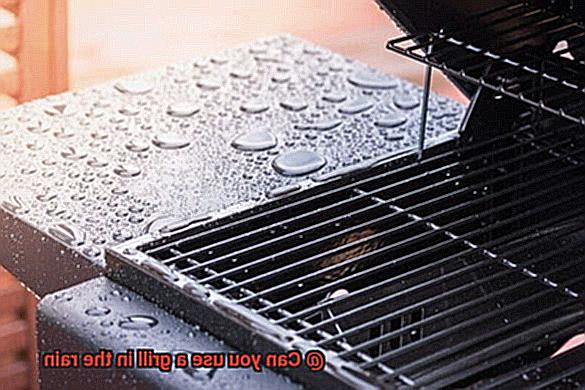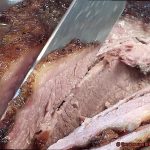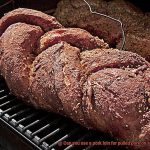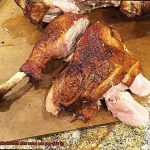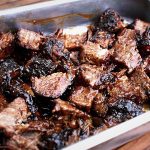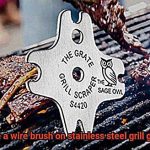As summer rolls in, so does the season of outdoor cooking. But what happens when Mother Nature decides to rain on your grilling parade? Do you pack up and move inside or brave the elements? For many grill enthusiasts, cooking indoors just doesn’t cut it. So, can you use a grill in the rain?
The answer isn’t as clear-cut as you might think. Some argue that it’s perfectly safe while others warn against it. In this blog post, we’ll explore both sides of the debate and offer practical tips for grilling safely in wet conditions.
Sure, there are risks involved like electrical hazards and flare-ups, but there are also benefits like fewer mosquitoes and cooler temperatures. We’ll dive into all of that here.
So don’t let a little rain ruin your barbecue plans. Read on to learn how to safely cook outdoors even when the skies are gray.
Contents
Can You Use a Grill in the Rain?
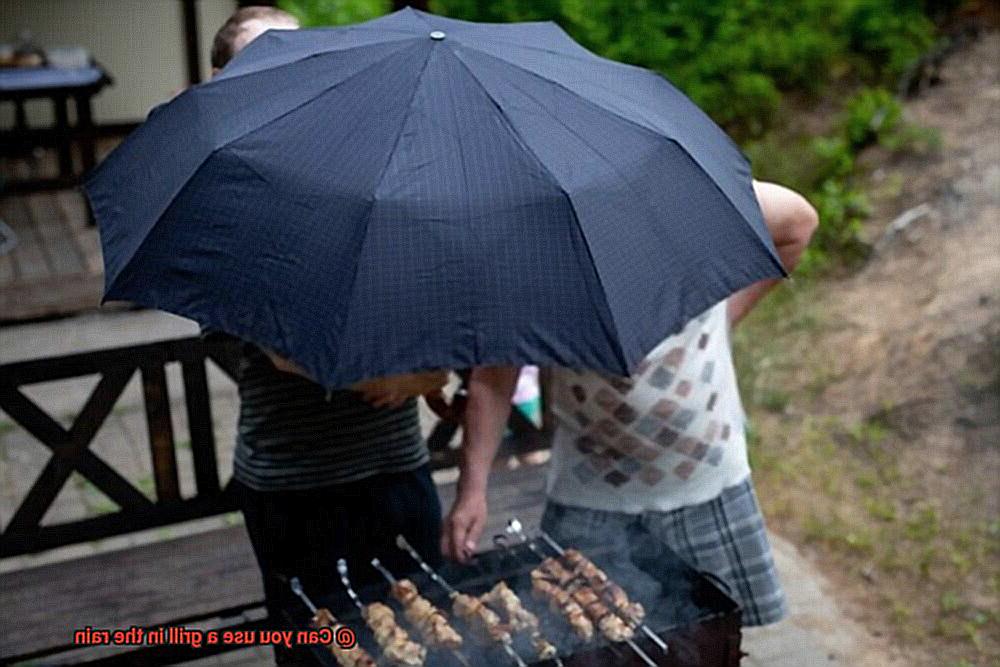
Grilling is a beloved activity that many people enjoy, rain or shine. However, when it comes to grilling in the rain, there are several factors to consider before firing up the grill. As an expert in grilling, I can confidently say that it is possible to use a grill in the rain, but it requires extra precautions to ensure safety and proper cooking.
First and foremost, ensuring that your grill is in good working order and that all safety features are functioning correctly is crucial. This includes checking the propane tank and hoses for leaks, as well as making sure that the ignition system is working properly. If you have an electric grill, ensure that the electrical cord and outlet are dry and free from any potential hazards.
The type of grill you have also plays a role in how easy or difficult it is to use in the rain. Gas grills tend to be more convenient because they have a built-in ignition system, while charcoal grills require more effort to light in wet weather conditions. Keep in mind that some grills may be more susceptible to rust and corrosion if left out in the rain for extended periods of time.
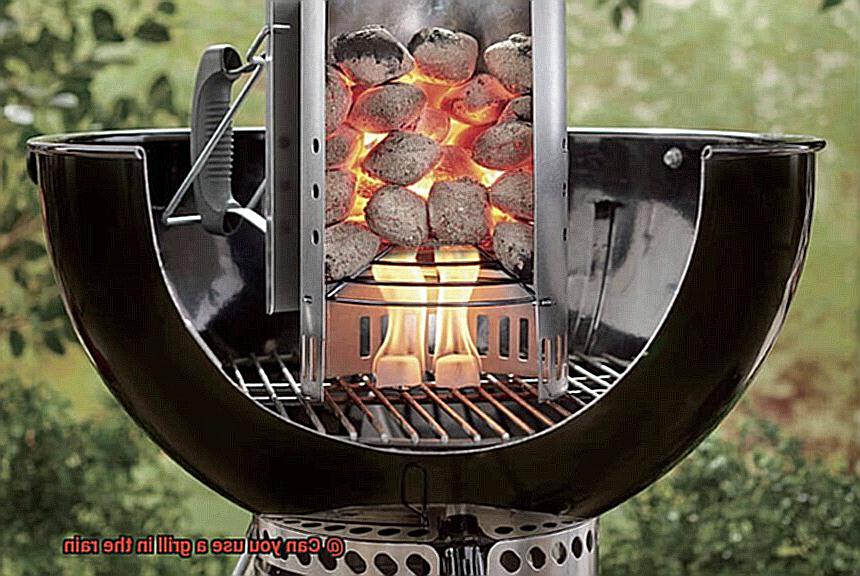
Another important aspect to consider is setting up your cooking area. It’s essential to choose a sheltered spot like under an awning or umbrella to prevent rain from dousing your grill flames. If you don’t have access to a sheltered area, using a waterproof grill cover or placing a tarp over the grill can protect it from the elements.
When grilling in the rain, adjustments are necessary to ensure safe and proper cooking. For example, you may need to increase your cooking time and adjust the temperature accordingly since rain can affect the grill’s temperature. Using a meat thermometer can help ensure that your food is cooked thoroughly and safely.
It’s also important to take precautions against potential hazards such as slippery surfaces and electrical shock. Wear non-slip shoes and avoid touching any electrical components with wet hands. Always keep an eye on your grill while cooking and never leave it unattended, as sudden gusts of wind can knock over the grill and cause a fire hazard.
Safety Precautions for Grilling in the Rain
Grilling in the rain can be an exhilarating experience, but you must take extra safety precautions to ensure that it is done safely. As an expert on this topic, I have researched and compiled some valuable information to help you prepare for your next rainy day grilling adventure.
Firstly, it is crucial to consider the risk of electrocution when grilling in the rain. Rainwater can cause electrical currents to flow through metal surfaces, making electric grills particularly hazardous. To avoid this risk, keep your grill dry by using a grill cover or setting it up under a covered area. If you don’t have access to a covered area, consider using a large umbrella to shield your grill from the rain.
Another safety precaution to consider when grilling in the rain is slipping and falling. Wet surfaces can be incredibly slippery and hazardous, so it’s essential to wear appropriate footwear with good grip. Avoid wearing sandals or flip-flops as they offer little protection and can easily slip on wet surfaces.
When grilling in the rain, it is also crucial to keep children and pets away from the grilling area. Wet surfaces can be dangerous, and it is easy for children or pets to slip and fall near the grill. Ensure that your grilling area is well-lit and clearly marked to avoid any accidents.
In addition, always practice safe grilling practices when grilling in the rain. This includes monitoring your grill at all times, keeping a fire extinguisher nearby, and avoiding pouring water on a grease fire. It’s also essential to maintain a safe distance from the grill to avoid getting burned by any hot grease or flames.
To summarize, here are some safety precautions to follow when grilling in the rain:
- Keep your grill dry by using a cover or a covered area
- Wear appropriate footwear with good grip
- Keep children and pets away from the grilling area
- Practice safe grilling practices such as monitoring your grill at all times and keeping a fire extinguisher nearby.
Adjusting Cooking Time and Temperature for Rainy Conditions
Grilling in the rain can be a challenging but rewarding experience. However, adjusting cooking time and temperature is crucial to ensure the success of your grilling adventure. Rainy conditions can alter the temperature and cooking time, which can result in undercooked or overcooked food. So, let’s dive into some expert tips on how to adjust cooking time and temperature for rainy conditions when grilling.
Temperature is the first factor to consider. Rainy conditions can lower the temperature of your grill, so it’s essential to keep an eye on the thermometer and adjust accordingly. For gas grills, increasing the heat by 10-15% should compensate for the drop in temperature. For charcoal grills, adding more coals or using a chimney starter to preheat the coals before adding them to the grill can help maintain a consistent temperature.
Next, cooking time is critical. The rain can cause food to cook slower than usual due to the moisture in the air. So, patience is key here. Avoid opening the grill lid too often as this can cause heat loss and increase cooking time. Additionally, using a meat thermometer can ensure that your food is cooked to the proper internal temperature regardless of cooking time.
Another tip for adjusting cooking time and temperature in rainy conditions is to use a grill cover or tent. This can help trap heat and keep the rain from directly hitting your food while still allowing smoke to circulate around it. However, avoid completely sealing off your grill as excessive smoke buildup can lead to uneven cooking.
Potential Hazards of Grilling in the Rain
But before you fire up your grill, it’s crucial to understand the potential dangers that come with grilling in the rain.
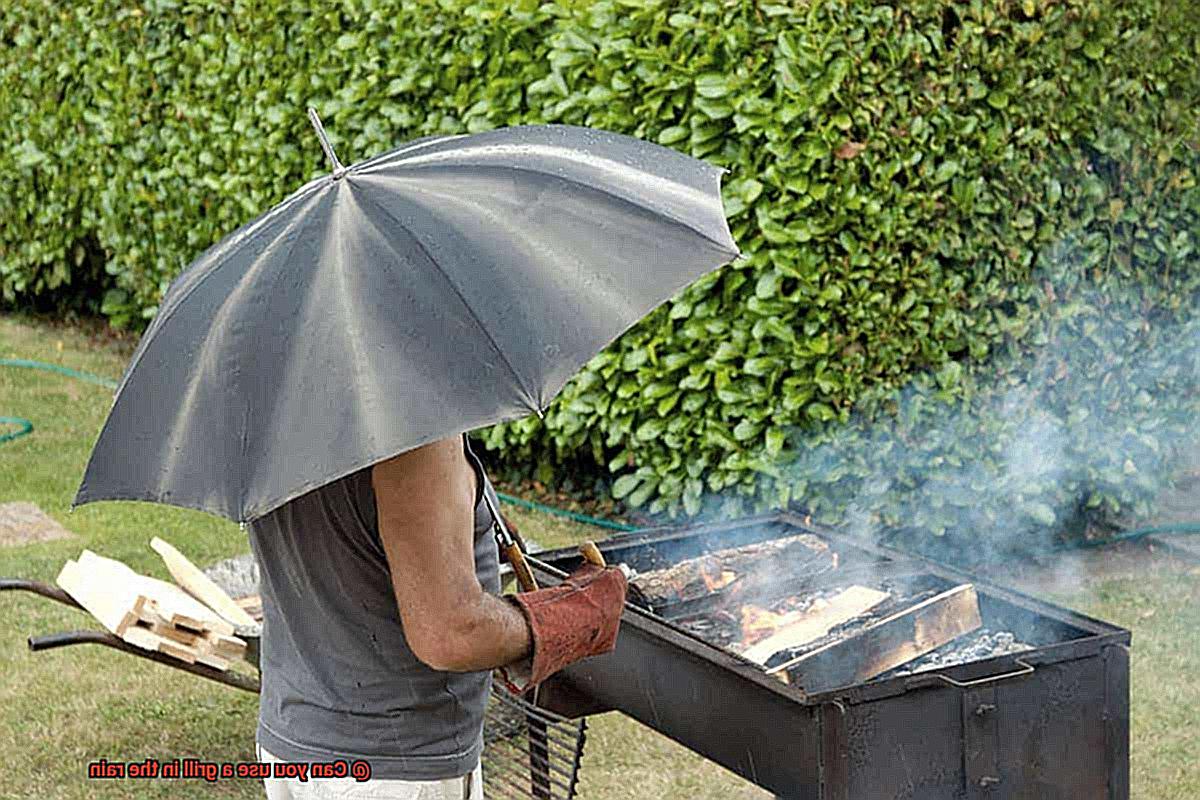
One of the most significant hazards is the risk of electrical shock. If your grill is electric, using it in wet conditions could be deadly. Water conducts electricity, and any contact with your grill’s electrical components could lead to a short circuit. To avoid this danger, it’s always best to wait for dry weather before using an electric grill.
Another danger to consider is slipping and falling. Wet surfaces can be slippery, which can result in losing your balance while carrying hot items or moving around your grill. Before you start cooking, ensure that your grilling area is dry and free of standing water.
Aside from these hazardous situations, grilling in the rain can also affect the quality of your food. Rain can cause flare-ups and make it challenging to control the temperature of your grill, leading to overcooked or undercooked food—or even burnt food.
To ensure a successful grilling experience in rainy weather, here are some tips to keep you safe:
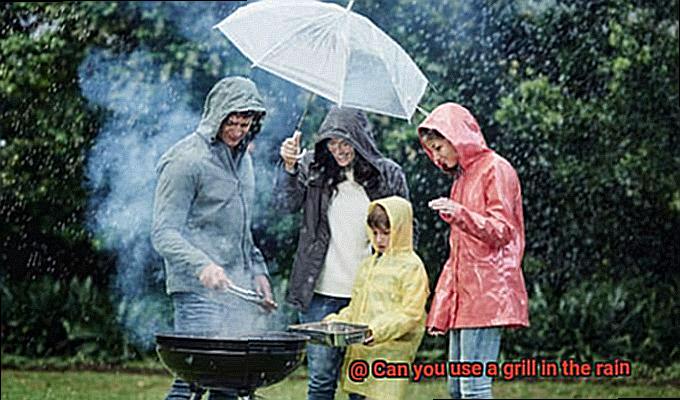
- Check if your grill is safe to use in wet conditions before starting.
- Keep your grilling area dry and free of standing water.
- Be extra careful when handling hot items.
- Use a grill cover or tent to trap heat and smoke while keeping rain away.
- Adjust temperature by increasing heat for gas grills or adding more coals for charcoal grills.
- Avoid frequent lid openings to keep heat and smoke inside.
Tips for Choosing a Safe Location to Grill in the Rain
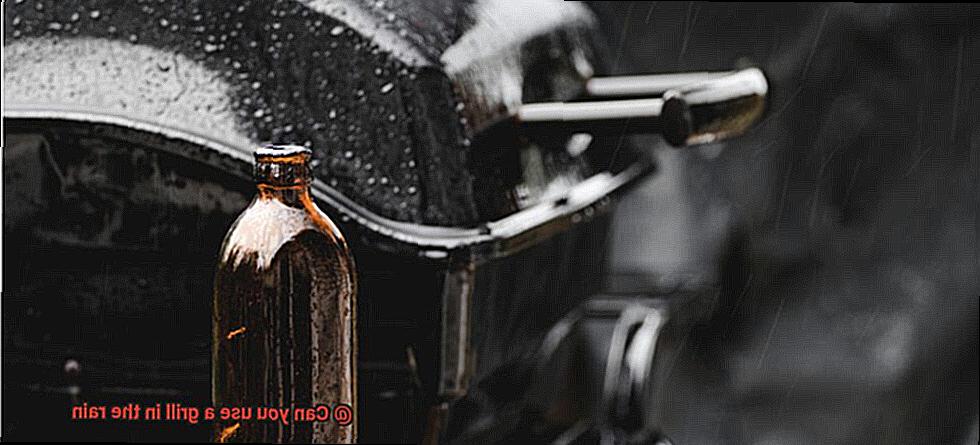
Grilling in the rain can add a fun and exciting twist to your outdoor cooking experience, but it can also pose some safety hazards. One of the most important factors to consider when grilling in the rain is the location where you will be cooking. Here are five tips for choosing a safe location to grill in the rain:
Sheltered areas are safest
When looking for a location to grill in the rain, look for sheltered areas such as under a porch or awning. This will protect you and your grill from getting wet and prevent any electrical hazards.
Avoid overhanging branches and trees
It’s important to avoid grilling under trees or near overhanging branches because heavy rain or wind can cause them to fall, potentially damaging your grill or causing injury.
Keep combustible materials away
Make sure that your grill is at least 10 feet away from any flammable materials such as dry leaves, bushes, and buildings. This will prevent accidental fires from starting.
Choose level ground
A stable surface is important when setting up your grill. Grilling on an uneven surface or unstable ground can cause your grill to tip over, potentially causing injury or damage to your equipment.
Avoid enclosed areas
It’s important to avoid enclosed areas when grilling in the rain because it can lead to carbon monoxide poisoning and is extremely dangerous.
By following these tips, you can ensure that you’re choosing a safe location for grilling in the rain. However, there are still other safety precautions that you should take into consideration.
When it comes to cooking in wet conditions, adjusting your cooking time and temperature is crucial. The rain can affect the temperature of your grill, so you may need to increase your cooking time and adjust the temperature accordingly. It’s also important to use a meat thermometer to ensure that your food is cooked thoroughly.
Lastly, be aware of potential hazards such as slipping on wet surfaces or electrical shock. Use non-slip shoes and avoid touching any electrical components with wet hands. And always keep an eye on your grill while cooking and never leave it unattended.
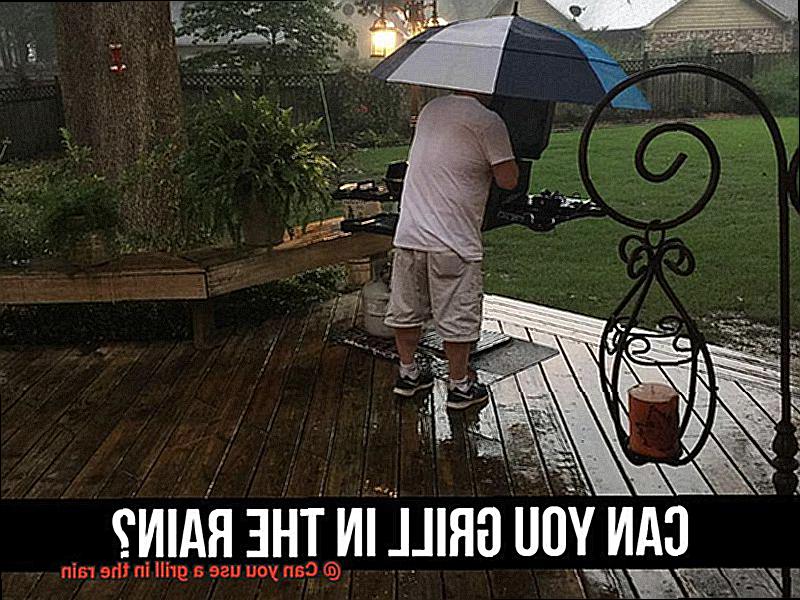
Essential Equipment Needed for Grilling in the Rain
Well, with the right equipment, you can grill up a storm even in the wettest of conditions. From a waterproof cover to non-slip shoes, here are the essential pieces of equipment you need for grilling in the rain.
First up, a waterproof grill cover is an absolute must-have. Not only will it protect your grill from moisture and rusting, but it will also keep it clean and dry. No one wants to cook on a dirty grill, right?
Next, you’ll need an umbrella or canopy to provide shelter from the rain while you’re grilling. These can also be used to cover your workspace or prep area, keeping everything dry and in good condition.
Wet conditions can make grilling more challenging, so heat-resistant gloves are crucial to protect your hands from burns. They’ll also provide you with a better grip on utensils and prevent them from slipping. And don’t forget about wearing non-slip shoes—these are essential to prevent slipping on wet surfaces around your grill.
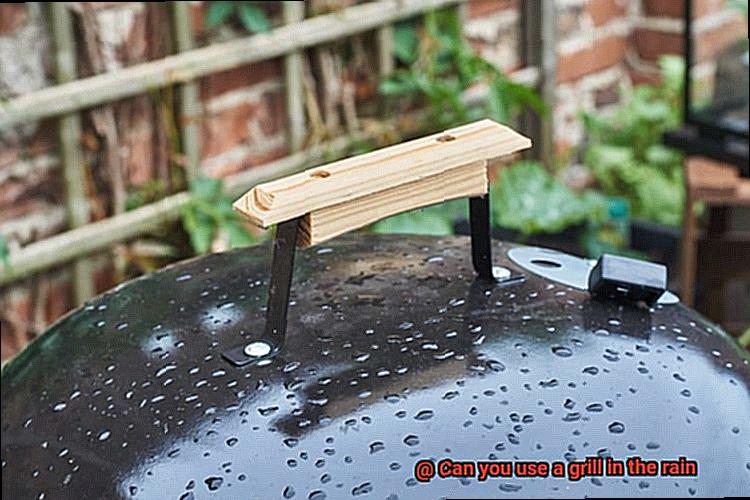
Of course, no grilling session is complete without a good set of tools. A durable grilling tool set with long handles is necessary for any grilling session, rain or shine. It’ll keep your hands away from the heat while providing you with everything you need to cook up a delicious meal.
Last but not least, if you’re using a charcoal grill, invest in a chimney starter. This handy piece of equipment will help you get your coals hot quickly, even in wet conditions. Plus, it’s safer than using lighter fluid, which can be dangerous in wet conditions.
With these essential pieces of equipment on hand, you’re ready to take on the challenge of grilling in the rain. But don’t forget about safety. Choose a sheltered location away from overhanging branches and trees and keep combustible materials away from the grill. And always keep an eye out for signs of lightning or thunderstorms.
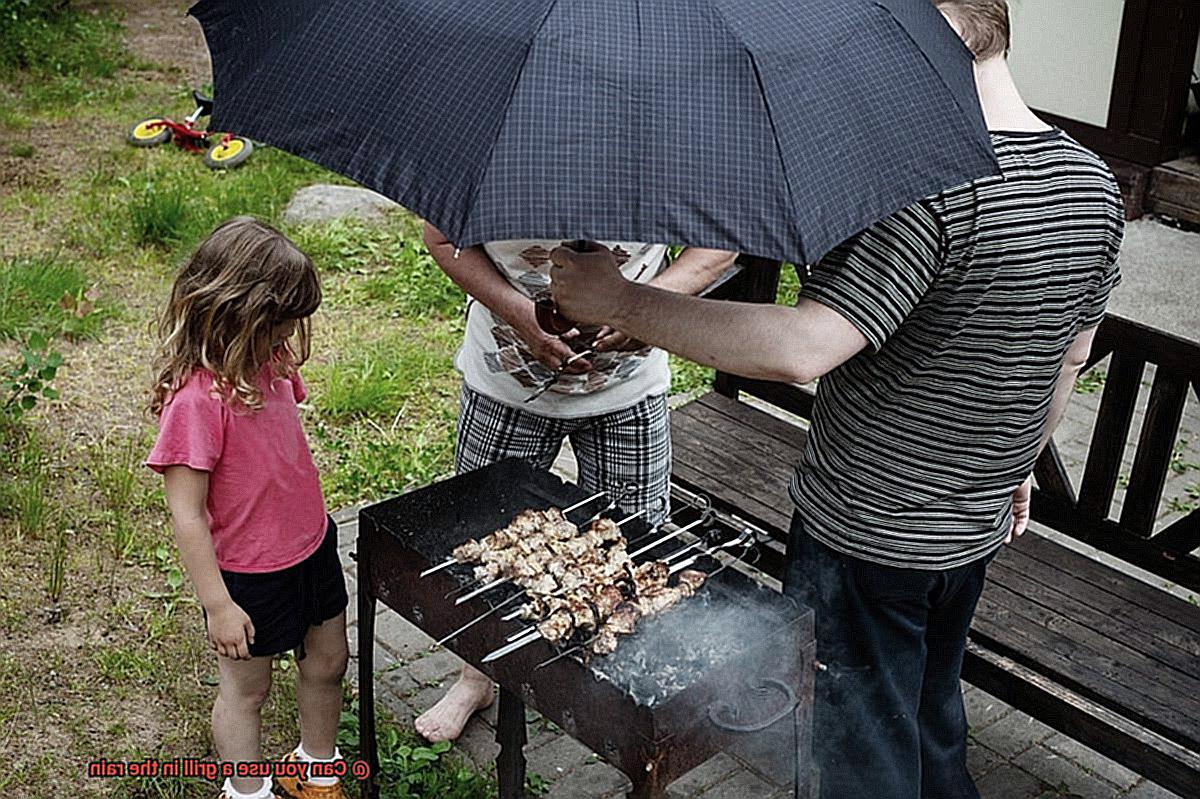
How to Properly Store Your Grill After Use in the Rain
Grilling in the rain can be a thrilling experience, but it’s crucial to take steps to protect your grill from moisture or other weather elements after use. Properly storing your grill is essential for its longevity and safety. Here are five sub-sections to help you learn how to properly store your grill after use in the rain:
Let it cool down
Before handling your grill, allow it to cool down completely. This will prevent any burns or accidents while cleaning and storing the grill. Once cooled, use a clean cloth or paper towel to remove excess water or debris from the grill.
Check the grease tray
Moisture can accumulate in the grease tray during grilling, which can cause flare-ups or fires when using the grill next time. Ensure to remove any excess water or grease from the tray after use and consider washing it with soap and water to eliminate any buildup.
Inspect components for rust or damage
Rust and damage can occur due to moisture exposure. Check the burners, grates, and other components for any signs of rust or damage. If you notice any issues, address them promptly to prevent further damage and ensure safe use of the grill.
Cover with a waterproof cover
Protect your grill from any further moisture or debris by covering it with a waterproof cover that fits snugly over the grill. Make sure that the cover is securely fastened to prevent any potential damage from wind or other weather elements.
Store in a dry location
Store your grill in a dry and sheltered area, such as a garage or shed, to protect it from any further exposure to rain or other weather elements. Ensure that the grill is positioned upright and not on its side as this will prevent any water from pooling inside the grill and causing damage.
GJ3VAbJaAxU” >
Conclusion
To sum up, grilling in the rain can be a thrilling and enjoyable experience for outdoor cooking enthusiasts. However, it’s important to take extra precautions to ensure safety and proper cooking. Checking your grill’s safety features and setting up a sheltered cooking area is essential to avoid electrical hazards and slipping on wet surfaces.
Adjusting your cooking time and temperature is also crucial to compensate for the rain’s effects on the grill’s temperature. When selecting a location for grilling in the rain, make sure to choose sheltered areas that are away from overhanging branches or trees, have level ground, and are not enclosed.
To ensure a successful grilling session, you’ll need essential equipment such as waterproof covers, umbrellas or canopies, heat-resistant gloves, non-slip shoes, and durable grilling tool sets. After use, properly storing your grill is vital for its longevity and safety. Make sure to let it cool down before cleaning excess water or debris from the grill. Check components for rust or damage and cover with a waterproof cover before storing it in a dry location.
By following these tips and safety precautions, you can safely enjoy grilling in the rain without any hazards or risks. So don’t let a little rain dampen your barbecue plans.

